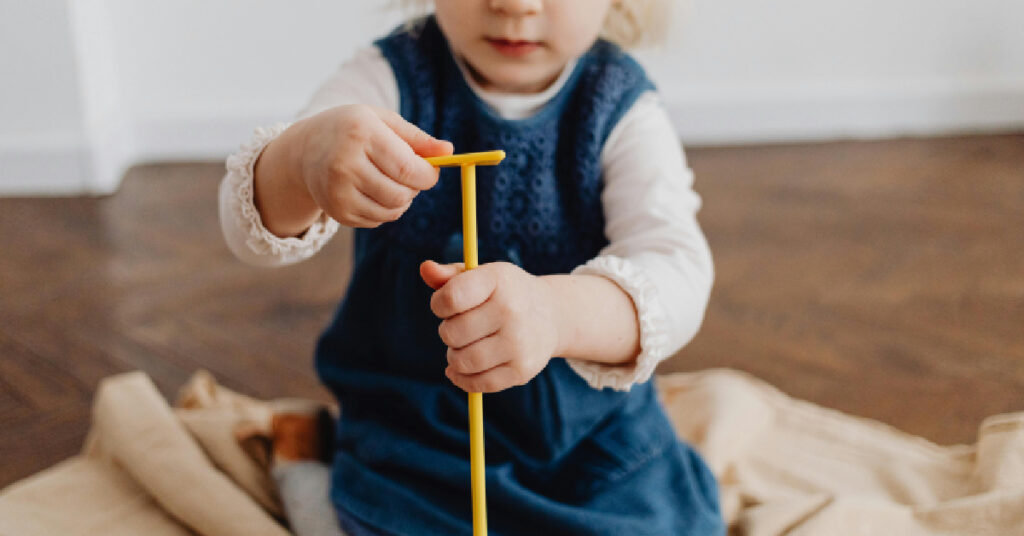
15 Best Toys for Building Independence — That Aren’t Boring or Overhyped
From magnetic tiles to dolls and pretend kitchens, these 15 toddler toys are actually worth the shelf space — and designed to encourage solo play
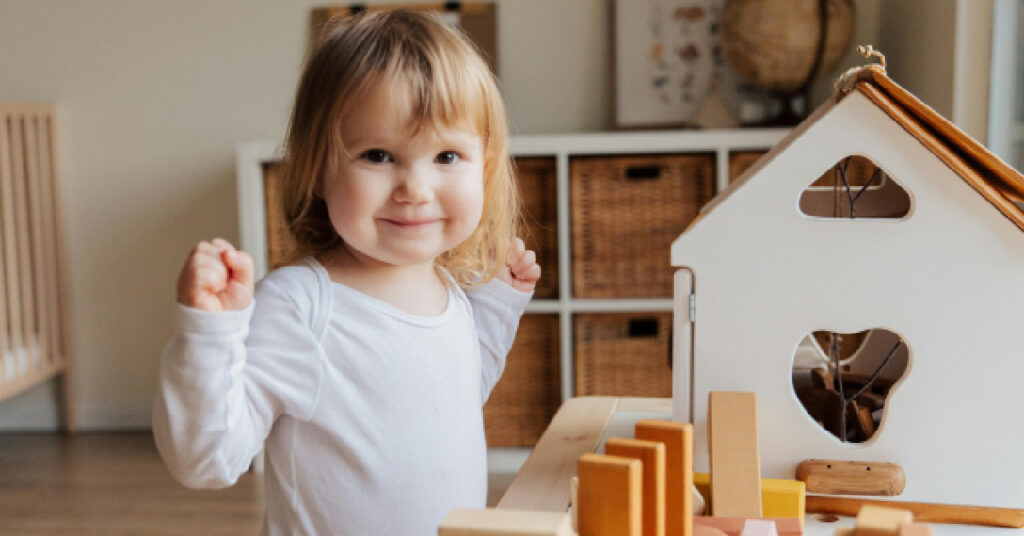
This page may include affiliate links
If you’ve ever heard your toddler huff dramatically and shout “I’m BORED!” five minutes after breakfast, you’re not alone — and you’re not failing.
In fact, you might be doing something incredibly powerful for their development without even realizing it.
Welcome to the world of toddler boredom benefits.
It feels counterintuitive, right? Everything we see online tells us to fill the day with curated activities, colour-coded routines, and Montessori-level setups that look like they belong in a museum. But here’s the truth: when toddlers are left to be bored — without a schedule, without flashing lights, and without us constantly stepping in — their brains get to breathe.
And that breathing space? It’s where the magic happens.
In this blog, we’re unpacking the real, research-backed toddler boredom benefits. You’ll see why letting your little one sit in the “I don’t know what to do” zone is actually building creativity, independence, and emotional flexibility. We’ll walk through what science says, why the guilt hits so hard, and how to ride out the tantrums without rushing in to fix them.
Spoiler: boredom isn’t bad. It’s essential. And it might just be the parenting permission slip you didn’t know you needed.
Before we talk glitter bins and DIY sensory trays, let’s talk brains. Because one of the biggest toddler boredom benefits? Brain growth.
Studies in early childhood development show that when kids experience boredom, their brains aren’t “doing nothing” — they’re busy creating new connections. Boredom invites the brain to solve problems, generate ideas, and tap into creativity without external prompts.
In fact, a study published in Psychology Today found that boredom is closely linked to increased imagination and flexible thinking — especially in younger children. When toddlers don’t have their play prescribed or constantly directed, they’re forced to think for themselves. That moment of “I’m bored” quickly becomes “I wonder what happens if…”
That’s cognitive gold.
Boredom gives toddlers space to:
Practice decision-making
Strengthen executive functioning (aka self-regulation)
Invent new games, stories, or uses for toys
Engage in open-ended play (without needing you as the play director)
One of the most overlooked toddler boredom benefits is this: it fosters initiative. A bored toddler will (eventually) seek out something to do — and when that something is self-directed, it sticks.
Of course, that doesn’t mean they won’t whine first. But if we hold the line, we’re letting their brains do some heavy developmental lifting.
Read More: Best Open Ended Toys For Toddlers by Age (1–5 Years)
It’s 10am. Your toddler is pacing the lounge like a tiny CEO between meetings, muttering “I’m bored” every 42 seconds. And you? You’re resisting the urge to pull out glitter glue, bake banana muffins, and start a scavenger hunt — just to avoid the guilt.
Because here’s the thing: we’ve been conditioned to see toddler boredom as a problem we’re supposed to fix.
Modern parenting culture doesn’t exactly make it easy to lean into the quiet. We’re bombarded with curated Pinterest activities, Reels of supermums hosting backyard sensory Olympics, and an endless scroll of “How to Keep Your Toddler Busy” checklists. The message is clear: a good parent = an entertaining parent.
But here’s the truth (and one of the most freeing toddler boredom benefits): boredom is not a gap in your parenting. It’s a gift to your child.
When we constantly entertain, we accidentally teach our toddlers that boredom is uncomfortable — something to avoid or distract away. But when we allow space for nothingness, we’re actually helping them build tolerance for discomfort, self-direction, and creative autonomy.
The guilt comes from love. But sometimes love looks like not jumping in with a solution. Sometimes, it looks like sitting beside your toddler and saying, “Hmm. I wonder what you’ll come up with.”
And then letting them figure it out.
So, what happens when you don’t swoop in with a new activity every time your toddler gets restless?
Well… first, probably a meltdown.
But after that? That’s when the real toddler boredom benefits kick in.
It might start small — they find a spoon and turn it into a spaceship. Or they line up blocks and pretend they’re animals at the vet. What looks like randomness to us is actually the beginning of something powerful: self-led, creative, independent play.
Here’s what often unfolds when you give boredom a little breathing room:
Toddlers need space and trust to build this skill. If we always jump in to entertain, they never get to practice it. But give it time, and you’ll notice your child slipping into their own little world — without needing you to script the story.
A bored brain is a curious brain. “What happens if I pour these pom poms into my shoes?” may sound like chaos, but it’s also science, problem-solving, and exploration in action.
A pillow becomes a boat. The dog’s water bowl is suddenly a swimming pool for LEGO people. This is the core of open-ended play — and one of the biggest toddler boredom benefits is that it drives this kind of imagination.
The more they practice finding something to do, the longer they can stick with it. And no, it won’t happen overnight — but it will happen.
One of the most underrated toddler boredom benefits? It sparks imagination like nothing else.
When there’s no toy telling them what to do, no adult leading the game, and no screen flashing the next activity — the toddler brain goes into overdrive (in the best possible way). That space between “I’m bored” and “I’ve figured something out” is where creativity starts to bloom.
Here’s what boredom makes possible:
Without a prescribed plan, toddlers are forced to invent one. That might look like stacking cushions into a mountain, pretending to be a puppy for 40 minutes, or wrapping baby wipes around their dinosaurs like blankets. Weird? Yes. Genius? Also yes.
Creativity isn’t just about art — it’s about problem-solving. When toddlers have the freedom to reimagine a block as toast or a colander as a hat, they’re practicing cognitive flexibility, which is essential for future learning.
A huge benefit of toddler boredom is that it teaches kids they don’t need new things to play. What they need is permission to explore what’s already there. That’s not just creative — it’s sustainable and empowering.
Here’s where things get real — because letting toddlers be bored doesn’t mean doing nothing. It means setting the stage, stepping back, and trusting the process (even when it feels super uncomfortable).
The truth? One of the biggest toddler boredom benefits is helping kids learn to lead their own play — and that starts with how we support the space around them.
Set up a safe area where your toddler can explore freely without constant “no”s. A rug, a few bins of open-ended toys, and some room to move is enough. This freedom gives boredom somewhere to land — and creativity somewhere to take off.
Read More: The Power of “Yes Spaces”: Safe Environments That Invite Play
Too many choices can overwhelm. Rotate toys, group them simply, and make sure your toddler can reach them independently. The easier it is to access, the faster they’ll fall into play when boredom strikes.
Sometimes, a simple invitation helps: “I wonder what kind of tower you could build today,” or “I set out some spoons and cups — see what you can make.” Give just enough to get them curious, then exit stage left.
The scowl. The flop on the floor. The dramatic sigh. Totally normal. You don’t need to fix it — you just need to hold space for it. The more you ride it out, the more your toddler learns that boredom isn’t a crisis.
Even if it takes 10 minutes. Even if it ends with pom poms stuffed in their undies. Boredom leads somewhere — and the more we let it run its course, the stronger their independence (and your coffee game) becomes.
Okay, let’s not sugarcoat it — toddler boredom benefits sound magical, but the journey to those benefits? It’s bumpy. There will be whining. Possibly screaming. Maybe even a shoe thrown down the hallway.
That’s not you failing. That’s boredom working its way through your toddler’s nervous system.
Boredom is uncomfortable. Toddlers don’t have the words (or impulse control) to say, “I feel uncertain and unsure of what to do next, please help me regulate my emotions.”
Instead, they throw themselves on the floor and yell.
What you’re witnessing isn’t defiance — it’s a developing brain figuring out how to sit with uncertainty. And one of the lesser-talked-about toddler boredom benefits is that it teaches kids to manage frustration, not just avoid it.
Validate: “It’s hard when you don’t know what to do next.”
Stay close, calm, and boring: Your presence is enough.
Don’t fill the silence: Let them get curious again on their own.
Reset if needed: Offer a snack, a drink, or a quiet sensory break if the spiral feels too big.
This is where resilience starts to build. The tantrum fades, and — without you jumping in — your toddler often drifts into play. That moment is gold. That’s where independent thinking, emotional regulation, and true creativity begin.
You don’t need to avoid the tantrum. You just need to know it’s part of the process.
And honestly? One of the most under-celebrated toddler boredom benefits is learning that hard feelings aren’t something we need to rescue our kids from.
If you take nothing else from this post, let it be this:
Boredom isn’t something to fix. It’s something to trust.
When we give our toddlers space to be bored — really bored — we’re gifting them something powerful: the ability to explore their own minds, test new ideas, and regulate their emotions without external input.
The toddler boredom benefits you can’t always see in the moment?
Increased independence
More imaginative play
Better problem-solving
Stronger emotional resilience
And a quieter house (eventually)
Of course, you’re still going to hear “I’m bored” at least 17 times a week. That’s fine. Let it land. Let it simmer. Then watch what your toddler creates when we stop filling every gap with noise and structure.
Because the truth is — your job isn’t to entertain.
It’s to hold space for what your child is capable of discovering, when given the freedom to be a little bored.
So next time you hear that classic whine?
Smile, sip your coffee, and say, “That’s okay, babe. I can’t wait to see what you come up with.”
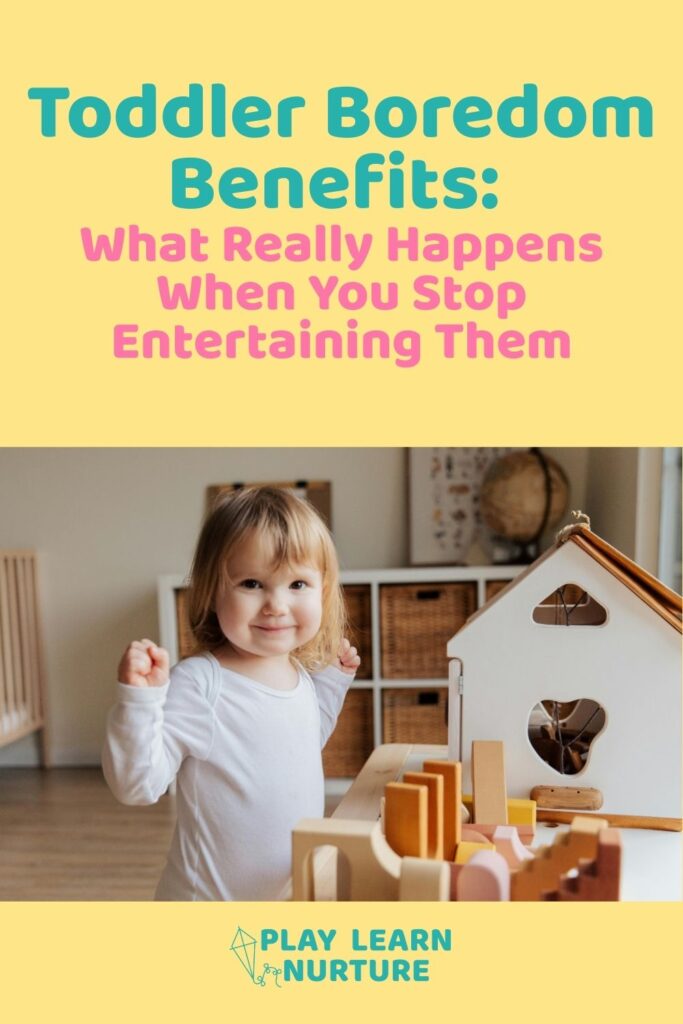
Best Open Ended Toys For Toddlers by Age (1–5 Years)
10 Must-Have Toys That Promote Creativity and Self-Led Play
Minimalist Toys Toddlers Actually Use: A Real Mum’s Guide to Open-Ended Play Essentials
How to Start Independent Play and Finally Enjoy 5 Minutes of Peace
The Incredible Benefits of Open Ended Play for Toddlers (Backed by Science + Real Life)

From magnetic tiles to dolls and pretend kitchens, these 15 toddler toys are actually worth the shelf space — and designed to encourage solo play
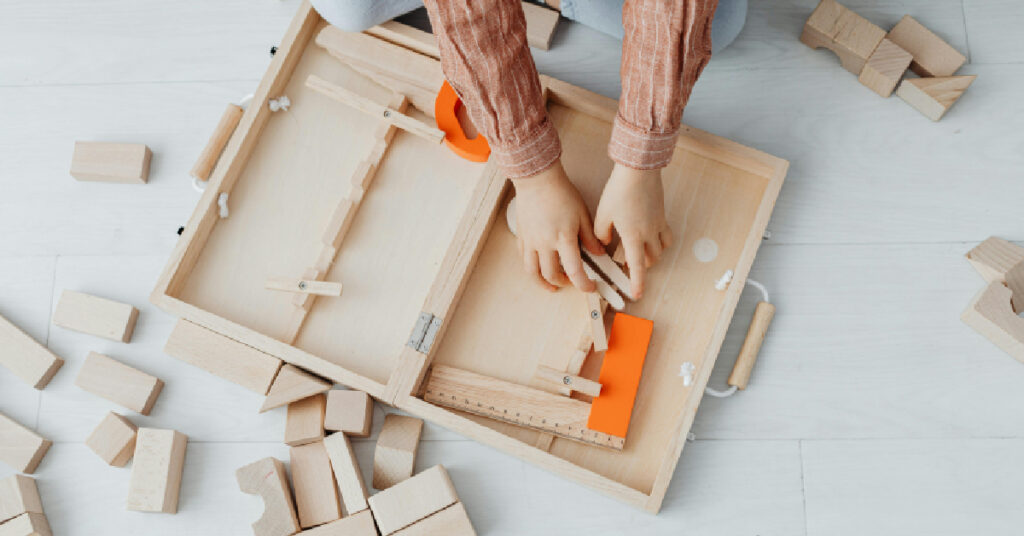
Delve into the world of loose parts play with our selection of toys that inspire exploration and innovation. Perfect for enhancing your toddler’s sensory and
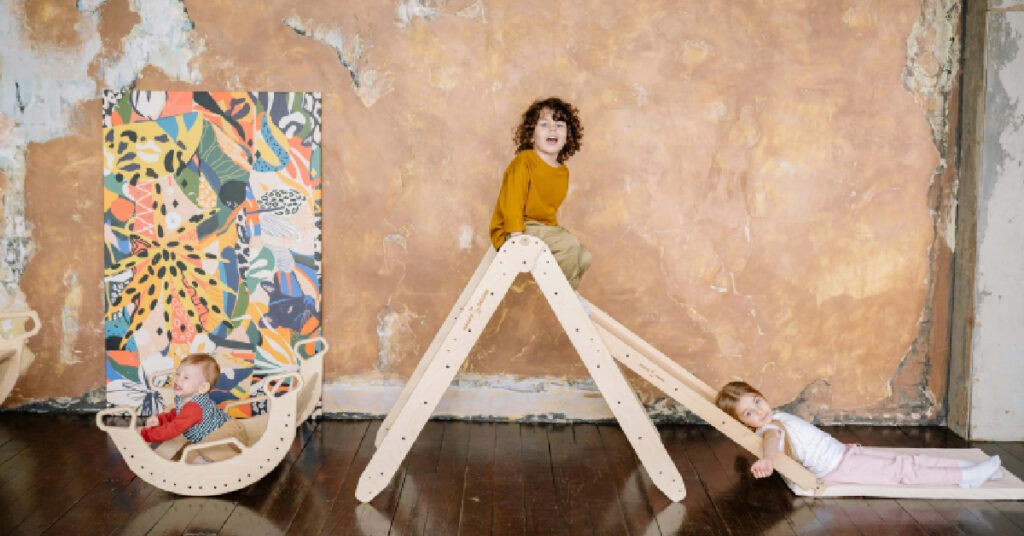
Simple, real-life play space ideas for toddlers that spark imagination, support independence, and give you a moment to breathe — no Pinterest-perfect setup required.
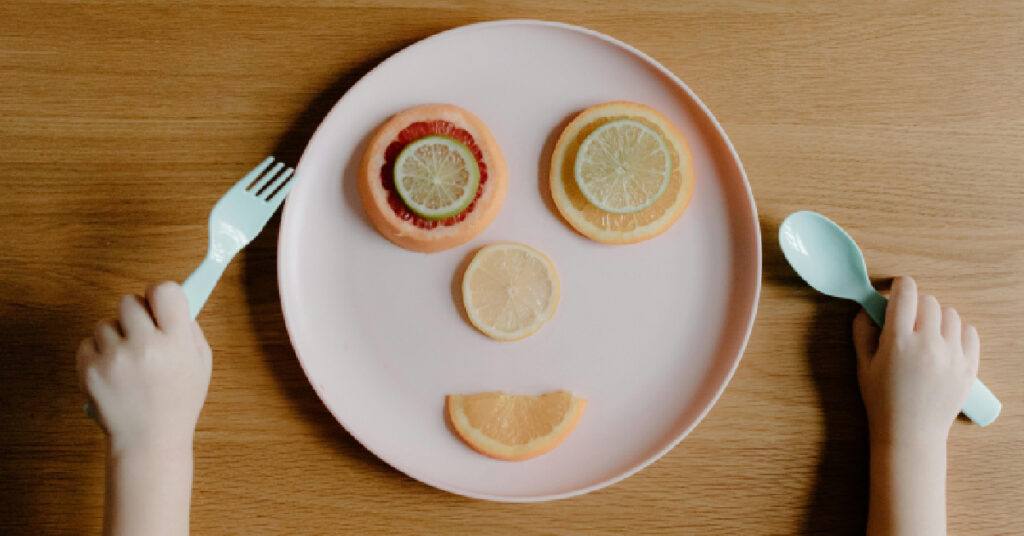
When the milk spills, the toddler tantrums, and your patience snaps before 9AM — you’re not failing. This is one mum’s story of surviving the
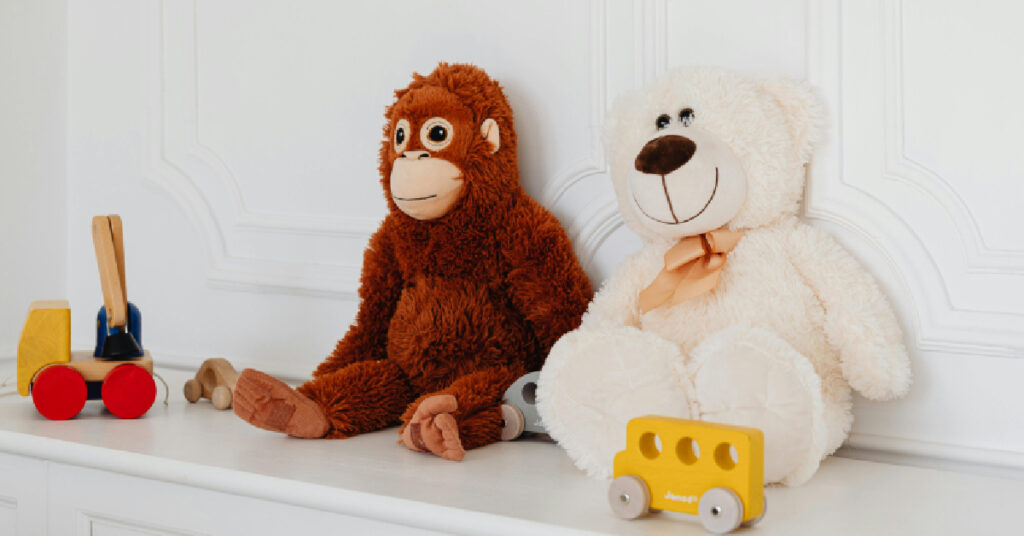
Discover how a simple toddler play schedule can create calmer days, boost independent play, and give you back precious breathing space — no strict routines

One chaotic morning, I realised the tension in the house wasn’t just coming from my toddler — it was coming from me. This is the